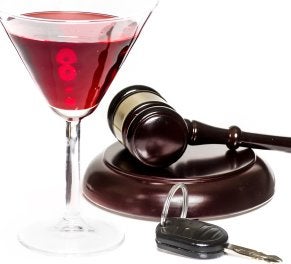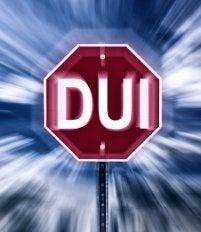-
Are You Obligated to Take a Field Sobriety Test?
If a police officer pulls you over on suspicion of traffic violations, he or she may request that you step out of the car and perform field sobriety tests. These tests include tasks such as walking heel-to-toe in a straight line. They are intended to provide further probable cause for police officers to arrest you and charge you with DUI or aggravated DUI in the Annapolis area. Unfortunately, it’s entirely possible for people who are not intoxicated to fail these tests, particularly when it’s nighttime and the individual is disoriented from having been pulled over.
As you’ll learn when you watch this video, field sobriety tests are not the same as chemical tests. Unlike chemical tests, it is not mandatory for a person to submit to field sobriety tests in Maryland. If you could be facing DUI or aggravated DUI charges, you have the right to request to be taken in for a chemical test instead. You also have the right to call a criminal lawyer if you are arrested.
Disclaimer: This article provides general information about the topics discussed and does not qualify as legal advice. Every case is different and the laws applicable to each case may differ. If you have a legal matter, you should speak to an attorney to get advice on your particular situation.
-
How Can DUI Charges Affect Your Life?
Itâs never acceptable to drive while under the influence of alcohol or drugs; however, everyone makes mistakes from time to time. If youâve been charged with DUI or aggravated DUI near Annapolis, itâs time to contact a criminal lawyer. Your criminal lawyer will explain the potential consequences if you are convicted. You may serve time behind bars and you may be placed on probation. The judge may order you to complete mandatory drug and alcohol counseling, pay substantial fines, and fulfill community service requirements.
Contact your DUI attorney and watch this brief video for more information on the potential consequences of a DUI conviction. The criminal defense attorney in this video explains that your auto insurance policy may be canceled or your premiums will increase substantially.
Disclaimer: This article provides general information about the topics discussed and does not qualify as legal advice. Every case is different and the laws applicable to each case may differ. If you have a legal matter, you should speak to an attorney to get advice on your particular situation.
-
A Look at Maryland’s Aggravated DUI Law
 Being charged with a DUI or DWI in Maryland is a serious offense, and you need help from a criminal lawyer near Annapolis. A DUI lawyer can make sure your legal rights are protected throughout the process. A criminal lawyer is also well-versed in state law and is often able to negotiate a plea deal with a prosecutor so you can avoid jail time. An aggravated DUI is an even more serious charge. Keep reading to find out why an aggravated DUI may be issued, the potential penalties you face, and how a conviction could harm your future.
Being charged with a DUI or DWI in Maryland is a serious offense, and you need help from a criminal lawyer near Annapolis. A DUI lawyer can make sure your legal rights are protected throughout the process. A criminal lawyer is also well-versed in state law and is often able to negotiate a plea deal with a prosecutor so you can avoid jail time. An aggravated DUI is an even more serious charge. Keep reading to find out why an aggravated DUI may be issued, the potential penalties you face, and how a conviction could harm your future. Reckless Behavior
An aggravated DUI is usually issued if law enforcement officials believe a Maryland driver has engaged in extremely reckless behavior. For example, aggravated DUIs are commonly charged if a drunk driver has an excessive amount of alcohol in their system, is transporting a minor, or causes a serious accident. An aggravated DUI can also be charged if you are a repeat offender, meaning you have a history of driving drunk.
Serious Penalties
With the heightened criminal charge come even stiffer penalties than normally accompany a DUI. If you are convicted, your aggravated DUI sentence may include a minimum six-month license suspension, a $500 to $1,000 fine, and up to a one-year jail sentence. On top of that, a judge can order you to undergo counseling or alcoholism treatment. Finally, you may have to have a device installed in your car that requires a breath test before you can start the ignition.
Lasting Consequences
An aggravated DUI conviction can have even more long-term consequences than jail time. If you do not consult a criminal defense attorney and are convicted of an aggravated DUI, you can expect your insurance rates to skyrocket. Even worse, you will have a lasting criminal record, which can make it difficult to find a job or secure housing. Unfortunately, once you have a DUI conviction on your record, it is almost impossible to have it removed. It is essential to hire a criminal lawyer as soon as you have been charged so that they can help you protect your rights and get the best possible outcome from your DUI.
-
A Look at Maryland’s DUI Laws
 If you have been charged with DUI (driving under the influence of alcohol) or a DWI (driving while intoxicated) your first step should be to contact a criminal defense attorney in Annapolis. Maryland drunk driving laws are complex, and DUI is a crime that carries stiff penaltiesâand potentially jail time. While a defense lawyer can help you determine your best legal course of action, it is a good idea to familiarize yourself with the law with this brief introduction to Maryland DUI and DWI laws.
If you have been charged with DUI (driving under the influence of alcohol) or a DWI (driving while intoxicated) your first step should be to contact a criminal defense attorney in Annapolis. Maryland drunk driving laws are complex, and DUI is a crime that carries stiff penaltiesâand potentially jail time. While a defense lawyer can help you determine your best legal course of action, it is a good idea to familiarize yourself with the law with this brief introduction to Maryland DUI and DWI laws. How Much Do You Have to Drink to Be Charged?
Anyone under 21 years old can be charged with a DUI or DWI if their blood alcohol level is .02% or greater. Drivers of legal drinking age can be charged with DWI if their blood alcohol content is between .04% and .08%. A DUI can be charged for drivers over .08%. Commercial drivers are held to a stricter standard, and may be charged for drunk driving if their chemical tests indicate a BAC at or over .04%.
Will I Go to Jail if I am Convicted?
Possibly. In Maryland, even first-time DWI offenders can face up to two months in jail, and a first DUI offense can carry a sentence of up to one year. After a second DWI conviction, drivers may spend a year in jail, while a second DUI can put you behind bars for up to two years. Added on to a criminal record and thousands of dollars in fines, it is easy to see why hiring a criminal lawyer is essential.
What Are the Legal Consequences if I Refuse a Breathalyzer?
Law firms generally advise their clients to take a chemical test when asked. After being pulled over, a police officer will generally first conduct a field sobriety test. The office may then ask you to submit to a breath or blood test to determine how much alcohol is in your system. Because Maryland operates under implied consent law, refusing to take a chemical test results in an automatic license suspension.
-
What Is a Felony DUI?
If you are charged with driving under the influence of drugs or alcohol. you can be charged with a misdemeanor or a felony DUI. It is important that you hire DWI lawyer near Maryland to advocate for your rights and potentially reduce the alcohol or drug charges against you with any type of DUI case. Whether the courts classify your DUI as a misdemeanor or felony depends upon your record of prior alcohol or drug charges, the amount of drugs or alcohol in your system, and the outcome of the accident.
If your DUI results in a personâs death, you will automatically be charged with a felony DUI. You may also be charged with a felony DUI if you have had more than one DUI, alcohol, or drug charge in the last ten years; your blood alcohol content was .20 or higher; you had a juvenile in the car at the time of the DUI; or you were driving at 20 miles per hour over the posted speed limit. In these situations, significant penalties apply, so it is essential to hire the right lawyer for your case.
Disclaimer: This article provides general information about the topics discussed and does not qualify as legal advice. Every case is different and the laws applicable to each case may differ. If you have a legal matter, you should speak to an attorney to get advice on your particular situation.
